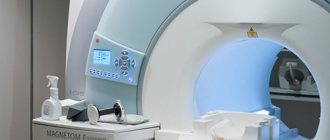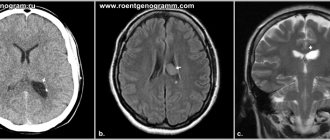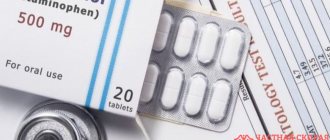Asperger's syndrome in adolescents (more often in boys) manifests itself as communication disorders, repetitive stereotypic behavior and difficulties in social communication. If you notice any behavioral or warning signs in your child or teen, please contact Leto Mental Health Center. We will help you determine the cause. If the diagnosis is confirmed, we will prescribe cognitive behavioral therapy, which allows you to learn those skills that you have not developed on your own.
Causes
Asperger's syndrome is a mental disorder that is one of the five autism-type disorders. But, unlike autism, speech and cognitive functions are preserved. Mental abilities are higher than those of ordinary people, but in one direction.
The reasons for the development of this syndrome are not fully understood, but genetic predisposition and the influence of external harmful factors during pregnancy can affect its formation. Manifestations of the syndrome can be noticed at the age of 1.5–2 years, and the final diagnosis is established after several years of monitoring the dynamics. After a full examination by a psychiatrist, child psychologist, occupational therapist and speech therapist.
Behavior of boys in adolescence
Internal changes greatly affect the behavior of boys.
They:
- become very emotional, even those who were previously calm. All this is accompanied by mood swings: one minute, intense joy can be replaced by intense sadness;
- seek “thrills” and take great risks;
- they begin to pay attention to girls and want to please them;
- begin to consciously approach the choice of clothing and care for their skin;
- react painfully to comments and violently express disagreement;
- they don’t finish what they started, and sometimes they don’t even start what they were talking about;
- get tired quickly;
- become irritable;
- They can do something energetically, and after a couple of minutes they fall onto the bed, exhausted.
Relationships with girls at this age are difficult to build, one of the reasons is that at the age of 11-12 years, girls are larger and stronger than boys. This affects the self-esteem of the children.
Our free book “Men Don’t Cry?!” will help you understand and cope with your son’s emotions. How to raise a boy to be strong and caring."
In general, if you look from the outside at what a teenager wants to be and what he really is, then these are almost two parallel worlds. Inside, the boy is strong, handsome, girls like him and everything works out for him. And on the outside he is still clumsy, disproportionate and with a changing voice.
Signs
Signs of Asperger's syndrome include:
- Difficulties in mutual communication in society - inability to interact with peers, behavior inappropriate to what is happening.
- Narrowness and limited interests. A craving for collecting, an obsession with one thing.
- The need for consistency in routine , activities, hobbies, love for order and ritual actions.
- Speech and language problems - monotonous or overly formal speech, literal perception of meaning, verbosity, sudden changes in the topic of conversation.
- Difficulties with non-verbal communication (misunderstanding of body language, facial expressions, intonation)
- Clumsiness.
An Aspergers teen learns visual information well, but has difficulty perceiving it auditorily . Often ignores generally accepted rules of behavior and breaks them because he does not know how to apply them in a certain situation. Doesn't notice other people's emotions and mood changes. Not capable of making friends. Due to increased sensitivity, he has his own specific preferences in clothing, which may not be popular among his peers, which causes ridicule of himself.
Due to a lack of understanding of what can be said and what cannot be said, and sometimes expressing tactless and inappropriate thoughts out loud, arouses hostility among others. The child becomes an outcast, which leads the Aspergers teen to depression and thoughts of suicide. At the Leto clinic, parents can get specialist advice on how to properly behave with a patient during a difficult period.
What happens in the body of adolescents at 11-12 years old?
The cardiovascular system. A teenager’s heart enlarges significantly, this is due to the growth of the heart muscle ─ myocardium. The heart volume of a 10-year-old boy is 130 cubic cm, and that of a 13-year-old boy is already 443 cubic cm. At the same time, blood vessels grow more slowly and the heart needs to make more efforts so that the body does not suffer from a lack of oxygen. The load on the heart increases and pain may appear in it.
Respiratory system. Lung volume also increases. But it is not yet possible to use all the oxygen received, so the brain lacks proper nutrition, which leads to headaches. The larynx begins to grow and the voice changes.
Musculoskeletal system. The tubular bones of the arms and legs and vertebrae grow rapidly. At the same time, the spine remains very mobile, and there is a high probability of its curvature. Large muscles grow faster than small ones, so it is difficult for a boy to work with small objects and he gets tired quickly. Teenagers aged 11-12 years old look disproportionate: long arms and legs, large feet.
Leather. The changes that occur in the boy’s body lead to the fact that the sebaceous glands begin to work more actively and irritations, rashes and pustules appear on the skin.
Nervous system. The brain begins to actively develop, especially the anterior sections of both hemispheres. The teenager begins to respond sharply to all comments directed at him. Excitement prevails over inhibition, so teenagers are unbalanced and their mood often changes.
The work of the autonomic nervous system, which connects the spinal cord and brain with the internal organs, is also not fully balanced. The blood vessels are poorly filled with blood, the pulse and breathing become faster, the brain lacks oxygen, dizziness and weakness appear. Vegetative-vascular dystonia is a common companion for adolescents.
Endocrine system. In boys aged 11-12 years, the thyroid gland begins to actively grow, which is responsible for the energy balance in the body. The gonads also develop, and the amount of testosterone in the blood of boys increases.
About the effect of testosterone on the body of a man in general and a teenager in particular, watch the video excerpt from the webinar “10 important secrets that mothers should know about boys.”
Symptoms
Asperger's syndrome is diagnosed at school age, based on the results of observation of the child's social behavior - this is how the disease is differentiated from autism. Due to the fact that such children develop speech without deviations and have a fairly large vocabulary in the preschool period, it is difficult to distinguish between Asperger's syndrome, attention deficit disorder and hyperactivity disorder.
But you should pay attention to the following symptoms:
- Impaired motor coordination, clumsy gait, delay in the development of motor skills. The child does not catch the ball, does not jump and is not able to learn this.
- A detached facial expression, a wandering gaze due to the inability to express one’s emotions and understand others’.
- Misunderstanding of non-verbal signs. A smile, a dissatisfied or menacing expression on the face, gestures do not have any meaning, the child simply does not know how to react to them.
- Lack of a sense of humor and the inability to grasp hidden meanings in the words or actions of other people.
- The need to perform monotonous activities every day. The slightest deviation from the regime, from the route, or a change in behavior can cause panic.
- An unusual manner of speech, characterized by monotony and lack of tonality. Can be very loud and with an incomprehensible accent. The child does not distinguish where it is allowed to speak loudly and where it is not. In adolescence, it manifests itself with inappropriate statements due to the inability to assess what is happening around.
- Selective mutism is the inability to speak in unusual conditions or to speak only one or two phrases. They may not be appropriate in meaning, they are simply the only words that the child can say now.
- An undying interest in fictional worlds and heroes in adolescence, when peers are already switching to more real things.
- Lack of sexual desire and asexuality in girls. They prefer to play with boys and do not share the interests of their peers.
- Inappropriate behavior in various social situations and rare interactions with strangers.
- Little eye contact or exchange of phrases when speaking.
- Excessive cleanliness and pedantry.
- Increased sensory sensitivity.
- Sleep problems.
- Increased interest in a particular topic or activity. Children learn everything about their favorite subject, know all the facts, the smallest details, and turn into experts in this field. They can talk for a long time about their interest, without noticing that they are no longer being listened to. This is one of the main signs by which the presence of the disease is determined.
Asperger syndrome in adolescents may not necessarily present with all symptoms at once. The symptoms of the disease and their severity are individual for everyone.
Medical features of adolescence
The main features of the development of children who become teenagers.
Physiologically, adolescence or puberty correlates with puberty and on average begins at 11-12 years in girls, at 12-13 years in boys and lasts until 16-17 years.
Significant hormonal changes occur in both girls and boys. Growth hormones, sex hormones, and thyroid hormones are activated. This gives impetus to changes throughout the body. Puberty begins and secondary sexual characteristics develop. The teenage period is the peak growth rate, when children can grow by 5-6 cm and the size of their feet in just a few months. During this period, there is a high risk of developing postural disorders and scoliosis, since the period of growth and changes in bone tissue coincides with the period of intense school workload. Parents should monitor and contact orthopedists and neurologists in a timely manner. Exercise therapy, manual therapy, and osteopathy help in these situations.
The work of the sweat and sebaceous glands increases, the latter causing teenage acne. Bringing your grown-up son or daughter to see a dermatologist can make his life much easier during this period. Adolescence, the growing up of a child, is a time of searching for new patterns of relationships between children and parents. If there is trust, the risk of missed health problems is reduced, the child is more likely to tell if something is bothering him. At our center, we note an increase in calls to psychotherapists who work with adolescents and family relationships. It becomes normal to ask your questions to a professional and ask for help in a situation where you can’t find a common language. With the help of psychotherapy, many associated health problems are also relieved.
According to the Order of the Ministry of Health of the Russian Federation dated December 21, 2012 No. 1346n “ On the Procedure for minors to undergo medical examinations, including upon admission to educational institutions and during the period of study in them
“Adolescents in our country should have very intensive medical supervision. Preventive examinations should not be treated formally. They reveal deviations in the state of health that parents may not notice on their own; measures can be taken in time to treat them.
- At 10 years old: pediatrician, neurologist, surgeon, dentist, endocrinologist, orthopedic traumatologist, ophthalmologist, otolaryngologist, psychiatrist. ECG, blood glucose test
- 11 years: pediatrician, surgeon, ophthalmologist, blood glucose testing
- 12 years: pediatrician, gynecologist or urologist-andrologist
- 13 years old: pediatrician, blood glucose test
- 14 years: pediatrician, dentist, gynecologist or urologist-andrologist, endocrinologist, neurologist, ophthalmologist, otolaryngologist, adolescent psychiatrist. Study of blood glucose levels, ultrasound of the abdominal organs, heart, thyroid gland and reproductive system organs, ECG.
- 15 years: pediatrician, surgeon, dentist, gynecologist or urologist-andrologist, endocrinologist, neurologist, orthopedic traumatologist, ophthalmologist, otorhinolaryngologist, psychiatrist. Study of blood glucose levels, ECG, lung fluorography.
The main diseases of adolescents, why do they occur? What diseases can be associated specifically with adolescence?
The issue of adolescent medicine is multifaceted, as it affects issues in the professional sphere of doctors of different specialties. The first frontier is pediatricians. They identify deviations in development and health status and refer them to specialized specialists. You can list the specialists who are more likely to deal with pathologies that manifest themselves or appear in adolescence: endocrinologists, gynecologists and urologists, neurologists.
Instability of the autonomic and nervous system can cause pallor, fatigue, dizziness, headaches, and sudden changes in mood. It is worth noting ophthalmologists, with an increase in the load on vision from the use of screens of electronic devices, the number of children who need specialist supervision and vision correction with glasses or lenses is increasing.
What “new” diseases, usually characteristic of people of the older generation, appear in adolescents?
For children in large cities, with environmental deterioration and lifestyle changes, with an increase in time spent statically, in front of a monitor and at school, with an increase in the amount of food skewed towards fat and simple carbohydrates, diseases that were previously rarely encountered in children become characteristic: obesity, diabetes, cardiovascular diseases, gastritis, pancreatitis.
In St. Petersburg, diseases of the ENT organs traditionally lead; in children and adolescents this trend is even more pronounced. The flow of patients to ENT offices does not subside even in summer. Adenoiditis, sinusitis, chronic tonsillitis—almost every resident of St. Petersburg is familiar with these diseases first-hand.
Recommendations for preventing the development of diseases are known to absolutely everyone, you can write for the thousandth time about balanced nutrition, that you cannot significantly exceed the required calorie content, take into account the balance of proteins, fats and carbohydrates, reduce simple carbohydrates (sugar, sweets, lemonade), limit fast food and other healthy food. In adolescence, parents should still control this and use their example to form correct eating behavior. For the normal development of the musculoskeletal system and muscular frame, sufficient physical activity is necessary, preferably in the fresh air to prevent diseases of the cardiovascular and respiratory systems.
Diagnostics
The first differences in behavior are noticed by parents in early childhood, but sometimes they appear later in adolescence if social demands increase and begin to exceed the child’s capabilities. The diagnosis is made by a psychotherapist after long-term observation of the child’s behavior and assessment of the following factors:
- social adaptation skills;
- speech development;
- the life story of a teenager.
To do this, the patient undergoes:
- examination and conversation with a psychiatrist;
- survey;
- neuropsychological tests;
- neurological examination;
- Brain MRI and EEG.
To establish a diagnosis, the following doctors are also involved: a psychologist, a child psychiatrist, a child neurologist, and a teacher-defectologist.
How to survive adolescence as a teenager
How to survive adolescence as a teenager
The definition of “adolescent age” almost sounds like a diagnosis and causes nervous tremors in parents. Its symptoms are considered to be instability, nervous breakdowns, aggression and uncontrollability of a teenager.
Are such problems inevitable and is there a way to survive the period of growing up painlessly?
The teenager begins to strive for independence and independence. This in itself is good, but excessive arrogance often leads to trouble. It seems to the child that he knows and can do everything. In fact, this is, of course, not true, but don’t even try to argue with him. Teachings and moralizing will go unheard. The authority of peers for teenagers during this period is more important than that of their parents. Especially if they do not find support and understanding from their parents.
In order not to seem like enemy number one to your own child, do not deny his right to make independent decisions, but note that he will have to bear responsibility for his actions himself. It is important to emphasize that you believe in the child and trust his prudence - after all, he is no longer a stupid baby.
If you want to give advice, refrain from using an edifying tone; it is better to unobtrusively tell an instructive story from your life, from which you let the child draw conclusions on his own. Trying to constantly keep your son or daughter in check and control every step is useless. Firstly, the forbidden fruit is doubly sweet, and, as they say, if you want, there is always an opportunity, and secondly, parental overprotection deprives a teenager of the opportunity to believe in himself and live with his own mind.
In some cases, the desire to escape from obsessive care causes deliberately shocking behavior. We all learn through trial and error. Do not reproach your child for his mistakes; rather, teach him an important rule: you need to be responsible for your actions and correct mistakes if possible.
Adolescence is a time of maximalism. There are no halftones for a teenager. All feelings are experienced vividly and deeply. If you love - then to the point of worship, to hate - to the point of trembling, to worry - to the point of deep depression. Judgments are always categorical and do not allow the slightest loyalty. At the same time, teenagers are very vulnerable, and any trifle can cause real Armageddon in their souls. A friend went for a walk with someone else - a betrayal that cannot be forgiven! Having managed to slip in front of the object of your sympathy is a shame with which it is impossible to live any longer. Just don’t try to tell your child that his tragedy is not worth a damn, and don’t even try to be ironic! With ridicule you can add so much fuel to the fire that the consequences can be irreparable. Remember that the teenager’s experiences are sincere and serious. Your task is to support the child, help him cope with emotions and survive a difficult situation for him.
During adolescence, a child begins to be critical not only of others, but also of himself. He passionately looks for flaws in himself and worries about them. Your task is to form adequate self-esteem in him. You shouldn’t deny the obvious - for example, convincing a chubby girl that she has a magnificent figure, and a puny boy that he is a hero. This will not sound like support, but like ridicule. And peers will not be so loyal, so a collision with reality is inevitable. It is better to decide together with your child how to correct the flaw that worries him. Let's say, sign up for a gym, treat acne, correct your bite. If some shortcoming cannot be corrected, discuss whether it really interferes with life, and focus on the advantageous aspects of appearance. Don’t dismiss your child as if he grows up, it will go away on its own—what’s important for a child is not “someday,” but “here and now.” And in no case should you deliberately emphasize or ridicule shortcomings: “Where are you going if you’re not tall enough?”, “Put down the pancake, otherwise your jeans will soon crack at the seams!”
Biased attention to one's own appearance is associated with the desire to please the opposite sex. Love failures, and failures in life in general, are directly linked to shortcomings: “Of course, if it weren’t for these acne/if I were slimmer/taller, everything would be wonderful.” Consequently, “if I am ugly, I will never be happy in life.” Adolescence is the time of first love. An awakening libido attracts the opposite sex, and the lack of experience in building relationships leads to worries and disappointments. Remember that a teenager can very easily become a victim of manipulation by a more experienced or older “friend.” For example, to enter into intimacy out of a desire to feel like an adult, to “prove love” or simply “to be weak.” Therefore, it is advisable for parents to discuss with their teenager issues of relationships with the opposite sex, including sexual ones. If your son or daughter does not make direct contact, select appropriate literature and leave it within the child’s visibility. Rest assured, it will not go unnoticed.
If a child decides to trust you with the secrets of his heart, take it seriously. Under no circumstances disclose what was told to you in confidence, otherwise you will forever lose trust. If something seems wrong to you, do not judge or blame the child; it is better to calmly state and argue your point of view.
Adolescence is the time when a child takes his first steps into adulthood, essentially knowing nothing about it. Therefore, it is important to establish a trusting relationship with the child in order to be aware of what is happening in his life and come to the rescue in time. It is important that he understands that he can turn to you in a difficult situation without fear of scolding and condemnation.
The best way to understand a teenager is to remember yourself at his age. As psychologists say, in each of us there lives an “inner child” as one of the aspects of the personality, and by allowing yourself to at least occasionally look at the world from this position, it will be easier for you to understand your son or daughter, and therefore find ways to mutual understanding .
Medical psychologist Kashnikova T.A.
Cost of services
| CONSULTATIONS OF SPECIALISTS | |
| Initial consultation with a psychiatrist (60 min.) | 6,000 rub. |
| Repeated consultation | 5,000 rub. |
| Consultation with a psychiatrist-narcologist (60 min.) | 5,000 rub. |
| Consultation with a psychologist | 3,500 rub. |
| Consultation with Gromova E.V. (50 minutes) | 12,000 rub. |
| PSYCHOTHERAPY | |
| Psychotherapy (session) | 7,000 rub. |
| Psychotherapy (5 sessions) | 30,000 rub. |
| Psychotherapy (10 sessions) | 60,000 rub. |
| Group psychotherapy (3-7 people) | 3,500 rub. |
| Psychotherapy session with E.V. Gromova (50 minutes) | 12,000 rub. |
| TREATMENT IN A HOSPITAL | |
| Ward for 4 persons | 10,000 rub./day |
| Ward for 3 persons | 13,000 rub./day |
| Ward 1 bed VIP | 23,000 rub./day |
| Individual post | 5,000 rub. |
| PETE | 15,000 rub./day |
This list does not contain all prices for services provided by our clinic. The full price list can be found on the “Prices” , or by calling: 8(969)060-93-93. Initial consultation is FREE!
Treatment
At the Leto clinic, a psychotherapist treats Asperger syndrome. Psychologists, speech therapists and neuropsychologists also work with children. Individual therapy has been developed for each patient to help improve motor and communication skills, adapt to the world around them, and learn to live with this disease. Treatment is carried out using two methods:
- Non-drug treatment:
- cognitive behavioral therapy;
- interpersonal interaction training;
- exercise therapy;
- occupational therapy;
- household training;
- development of public communication skills.
- Treatment with drugs is used for the following complications of the disease:
- depression;
- panic attacks;
- anxiety states;
- aggressive behavior;
- sleep disorders.
The prognosis of the disease is favorable if the diagnosis was accurate and timely, and all necessary measures were taken. In adulthood, the symptoms smooth out, and people can lead a completely normal lifestyle, start a family, and work. Some become brilliant scientists and mathematicians.
At the Leto mental health center, we provide assistance for any mental disorders in adults and children. Noticed the problem? Just dial 8(969)060-93-93!










